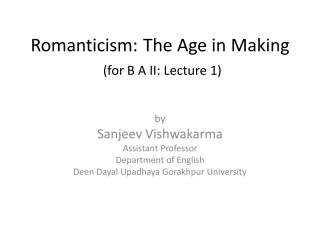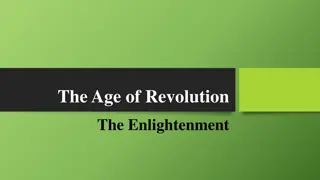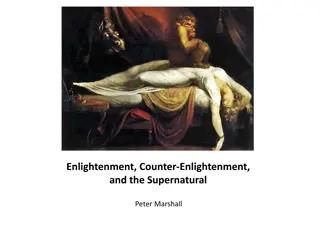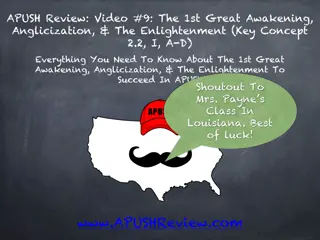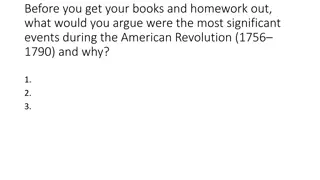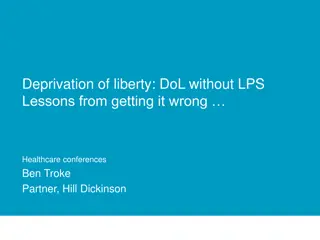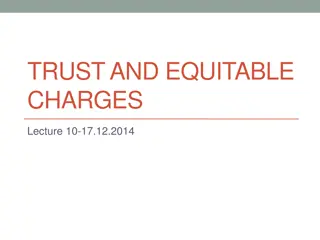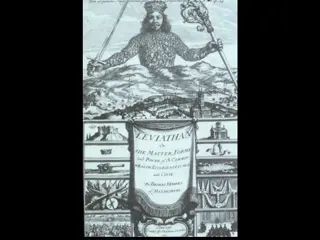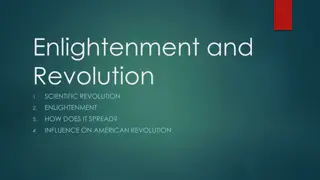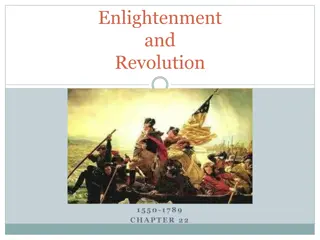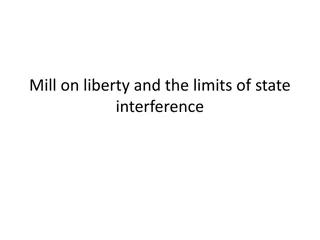Liberty & The Age of Enlightenment The American Battlefield Trust
The Age of Enlightenment, with its emphasis on natural law, liberty, progress, and constitutional government, greatly influenced American thinking and the Revolutionary War. Key figures like John Locke and Sir William Blackstone contributed ideas of social contract and law that shaped American governance. Other European Enlightenment philosophers such as David Hume, Voltaire, and Rousseau also left lasting impacts on American intellectual and political development.
Download Presentation

Please find below an Image/Link to download the presentation.
The content on the website is provided AS IS for your information and personal use only. It may not be sold, licensed, or shared on other websites without obtaining consent from the author. Download presentation by click this link. If you encounter any issues during the download, it is possible that the publisher has removed the file from their server.
E N D
Presentation Transcript
Liberty & The Age of Enlightenment The American Battlefield Trust
Essential Question How did the philosophies of the Enlightenment influence American thought and the Revolutionary War?
The Enlightenment A period of history stretching from the late 17th century through the end of the Napoleonic Wars in 1815. Ideals such as natural law, liberty, progress, constitutional government, and separation of church and state became byproducts of the workings of the great minds that lived during the Age of Enlightenment. This range of ideas and values sparked an outpouring of discussion, debate, and publication that set in motion the ideas that lead to revolutions and rebellions.
Patterns of Thought Natural law Liberty Progress Toleration Fraternity Constitutional government Separation of church and state Value of human happiness The pursuit of knowledge obtained by means of reason and the evidence of the senses
John Locke English; born 1632, died 1704 The idea of a social contract in which individuals consent to surrendering some of their rights in exchange for protection and order. American Revolutionaries adopted this notion and others, particularly in the Declaration of Independence. Following the Revolution, John Locke s political ideas continued to influence American government during the framing of the United States Constitution. Locke's promotion of separation of powers and theory that a government s authority is derived from the consent of the governed laid the groundwork for such principles in the Constitution.
Sir William Blackstone English; born 1723, died 1780 In the 1760s, Blackstone published a multi-volume study, Commentaries on the Laws of England. The Commentaries were republished 5 times during the 1770s and more than 1000 copies were sold in the American Colonies. Blackstone s legacy as a political philosopher greatly influenced the Revolutionary generation of the United States. Even after the Revolution, William Blackstone s philosophies continued to impact American government into the nineteenth and twentieth centuries.
David Hume Jean-Jacques Rousseau Voltaire Immanuel Kant Adam Smith Other European Enlightenment Philosophers
Enlightenment in the American Colonies As the 18th century progressed, colonists in North America were fond of newspapers, books, coffee shops, salons, and taverns. This led to further debate and expression of ideas, and burgeoning movements sprung up about individual liberty. Education efforts and colleges were founded in the American Colonies which encouraged political, religious, and social thought.
Enlightenment and the Revolution Enlightenment concepts, philosophies, and theories influenced the American Revolution. The idea that people could change governments (rebel) if a social contract was broken was at the political forefront of the Revolution. Creating a new nation built on the Laws of Nature, Social Contract, and the concept of Liberty. We hold these truths to be self-evident, that all men are created equal, that they are endowed by their Creator with certain unalienable Rights, that among these are, Life, Liberty and the Pursuit of Happiness. (Declaration of Independence)
Thomas Paine English/American Philosopher; born 1737, died 1809 Wrote Common Sense, one of the most widely read documents in America and a foundational document for persuading colonists to support independence from Britain. Wrote American Crisis which inspired Americans during some of the darkest days of the Revolutionary War.
Benjamin Franklin American Philosopher/Statesman; born 1706, died 1790 One of the better-known disciples of Enlightenment principles in America In his writings, Franklin reflected on the way people view their own responsibility, how they are better themselves as individuals, and scientific experimentation. His scientific, political, and social experiments were famous on both sides of the Atlantic.
Thomas Jefferson American Philosopher/Statesman; born 1743, died 1826. Authored most of the Declaration of Independence which was based on Enlightenment theories for social contract, government, and liberty. Later, he supported the early efforts of the French Revolution.
American Philosophers Many of the American Founding Fathers studied Enlightenment ideas and debated or practiced them to some extent. Here are a few other American Philosophers particularly noted for their ties to Enlightenment theories. Images: George Mason (upper left), Mercy Otis Warren (upper right), George Wythe
A Great Experiment In many ways, the Declaration of Independence and, later, the United States Constitution and Bill of Rights were products of Enlightenment theory. The new nation and government were a "great experiment" in these ideals of liberty. In many ways, the experiment of liberty continues to this day with new challenges and successes for each generation.


